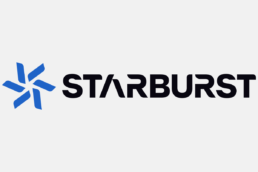The South Korean government has developed a systemic initiative to encourage entrepreneurship among the youth in Korea. They understand that not only will the traditional skills of reading, writing, and math be needed to thrive in this economy, but also technological savvy, self-direction, and entrepreneurship. The Young Entrepreneurship Support Project for Korean Traditional Culture, a campaign hosted by the Ministry of Culture, Sports, and Tourism and organized by the Korea Craft & Design Foundation, was a huge success. The project opened applications to support early-stage startups in the traditional culture field. Moreover, it was one of the few young entrepreneurship programs in Korea that focused on Korean culture.

Preservation of Korean Traditional Culture
Korea is globally known for its rich traditional culture. From handicrafts and Korean food to mask dances and Hanbok, Korean culture is receiving significant attention worldwide. Yet, startups in the conventional culture field are not as expected as in other industries. One of the reasons is that the younger generation considers traditional culture outdated and old-fashioned. However, if you look closely, traditional Korean culture still holds a strong presence in the modern world.
Korean crafts contain all types of household items, furniture, and other accessories that Koreans have devised to make their lives more comfortable and convenient throughout history. Each era in Korean history is accompanied by its unique development. Therefore, the South Korean government has made great efforts to preserve these crafts in the face of rapid technology/industrialization group through a program such as this entrepreneurship support program.
Furthermore, traditional cultural experiences are one of the most popular courses for travelers. Hotspots like the Bukchon Hanok Village or traditional markets attract a surge of global visitors yearly. For example, South Korea brought in over 17 million international visitors in 2019, generating over $21 billion in tourism revenue. The number of international visitors in 2020/2021 slowed considerably due to the pandemic. However, Seoul remains a city of opportunity, where traditional and cutting-edge technology can come together to spark new businesses.

Young Entrepreneurship Program
The Korean government has greatly tried to protect and restore Korea’s many cultural assets. Therefore, to preserve Korean traditional culture in Korea, the Ministry of Culture, Sports, and Tourism and the Korea Craft & Design Foundation launched a support project to encourage young entrepreneurs in this field. The project was open to any entrepreneur who wished to start a business in the traditional cultural industry. For example, tech-savvy young entrepreneurs in Korea who know how to market to their generation have the potential to take traditional Korean projects to the next level.
After a careful review of all applications, the program selected a total of 75 startups. Moreover, each startup was allocated to one of five accelerator companies. Under their host accelerator, the startups received the following benefits:

How N15 Partners Supports Korean Traditional Culture Startups
N15 Partners, a well-recognized accelerator in the Korean startup scene, is one of the main accelerating partners for this program. N15 Partners has been a big supporter of craftsmanship and creativity in the past.
“Traditional crafts are an essential part of the history and culture of Korea. It requires a lot of skills and effort to create an item. There is a lot of potential for cultural and creative industries to drive sustainable development and create inclusive job opportunities in South Korea. ”
– Jea Huh, Founder of N15 Partners
 Most of the startups under N15 Partners are manufacturing-based startups that develop products using techniques, patterns, and contents of traditional Korean culture. Therefore, the 15 assigned startups received a business diagnosis and face-to-face consultation with experts through the program to identify their strengths, weaknesses, and needs. Moreover, followed by education sessions in prototyping, branding, crowdfunding know-how, and budget management, the participants learned more about the basics of running a business.
Most of the startups under N15 Partners are manufacturing-based startups that develop products using techniques, patterns, and contents of traditional Korean culture. Therefore, the 15 assigned startups received a business diagnosis and face-to-face consultation with experts through the program to identify their strengths, weaknesses, and needs. Moreover, followed by education sessions in prototyping, branding, crowdfunding know-how, and budget management, the participants learned more about the basics of running a business.
The startups assigned to N15.
N15 specializes in hardware. Therefore startups in the Korean traditional craft/goods space have been assigned to their accelerator program. There is a variety of traditional Korean crafts from many different regions in Korea, and many startups in the program are looking to promote them globally. For example, ZAINER (Korean Blacksmith’s Knife) is a brand that combines technology and culture to create modern designs in Korean blacksmithing. You can see their work below.

Other startups include:
- Hwi Hyang Chan Ran (Korean Traditional Crafts)
- Mimyohan (Korean Traditional Crafts)
- SUL-SUL (Korean Traditional Crafts)
- Nubitteul (Korean Traditional Fabric Goods)
- Chilhan79 (Korean Traditional Crafts)
- Re;You (Korean Traditional Crafts)
- Cycloid (Barrier-free Hanbok)
- Chilpi-Studio (Korean Traditional Crafts)
- GRANGDIAN (Korean Traditional Fabric Goods)
- Neil House (Korean Traditional Crafts)
- ISVG Inc. (Korean Traditional Liquor)
- Su&Su Design (Korean Traditional Crafts)
- Arctdesign (Korean Traditional Crafts)
- Uniah (K-Culture Platform)
In addition, the program prepared the startups for the final evaluation which allowed them to showcase their business ideas to N15 Partners and their global network of investors. Furthermore, N15 Partners hosted a live-commerce exhibition. During the live-commerce exhibition, startups could sell their traditional cultural products to a live audience.
For further inquiries about the program and N15 Partners, contact jeongeun.goh@n15partners.asia
Popular
Related Posts






